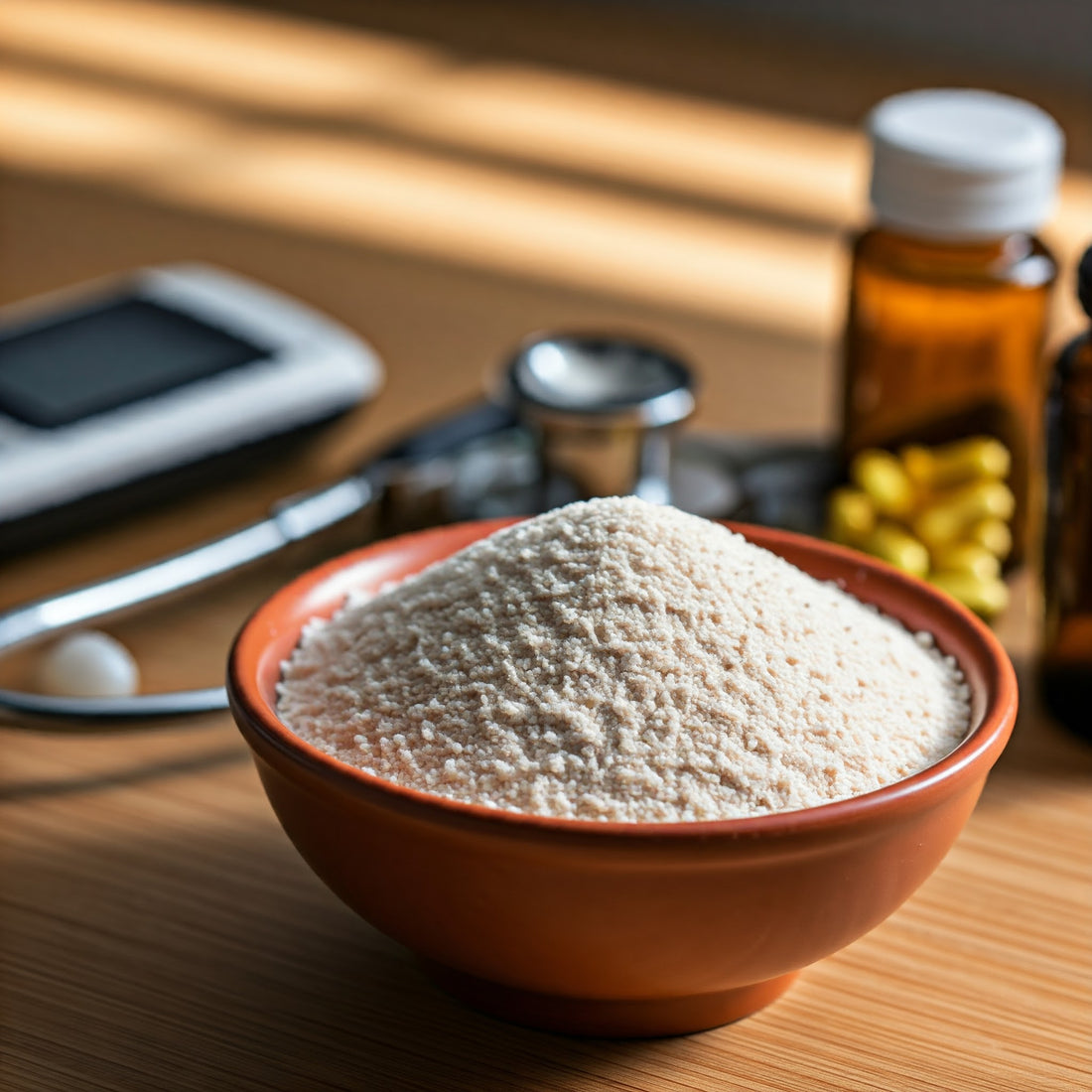
Psyllium Husk and Blood Sugar Management: New Research Reveals How It Supports Blood Sugar, Digestion, and Heart Health
Share
Psyllium husk, a powerhouse of soluble fiber, is widely known for its digestive health benefits. A recent study published in BMC Endocrine Disorders has revealed new and exciting findings about psyllium’s potential in managing blood sugar levels, making it a game-changer for individuals with diabetes or at risk of developing it. Let's dive into the insights and understand the science behind this versatile natural product.
The Study at a Glance
The research paper, “Psyllium Fiber and Glycemic Control: A Systematic Review and Meta-Analysis,” evaluated multiple studies to assess how psyllium affects blood sugar levels, insulin sensitivity, and HbA1c (a marker of long-term blood sugar control). The analysis included participants with diabetes, pre-diabetes, and healthy individuals, offering a comprehensive understanding of psyllium’s role.
Key Findings:
- Lower Fasting Blood Sugar (FBS): Participants who consumed psyllium regularly saw a significant reduction in FBS levels, highlighting its role in maintaining stable glucose levels.
- Reduction in HbA1c Levels: The study showed a notable decrease in HbA1c, emphasizing psyllium’s long-term benefits for blood sugar control.
- Enhanced Insulin Sensitivity: Improvements in HOMA-IR (a marker of insulin resistance) were observed, indicating better insulin function among those supplementing with psyllium.
- Greater Impact with Longer Use: Psyllium’s effects were most pronounced with consistent use over several weeks, proving that regular intake is key.
How Psyllium Husk Supports Blood Sugar Control
The study identifies several mechanisms by which psyllium impacts blood sugar levels:
- Slowing Carbohydrate Absorption: Psyllium forms a gel-like substance in the digestive tract, slowing the digestion and absorption of carbohydrates. This prevents sharp spikes in blood sugar after meals.
- Reducing Glycemic Load: The fiber content lowers the glycemic load of meals, making it particularly beneficial for individuals with diabetes.
- Improving Gut Health: Psyllium acts as a prebiotic, nourishing beneficial gut bacteria. A healthy gut is closely linked to improved glucose metabolism.
- Supporting Weight Management: By promoting satiety, psyllium helps regulate appetite, which is critical for managing weight and blood sugar levels.
Incorporating Psyllium Husk Into Your Routine
Here are some easy ways to include psyllium husk in your diet:
- As a Drink: Mix psyllium husk powder with water or juice and consume it immediately.
- In Smoothies: Add psyllium to your morning smoothie for a fiber boost.
- In Baking: Use psyllium in low-carb or gluten-free baking to enhance fiber content.
- As a Supplement: Capsules or pre-measured sachets can be a convenient option for daily intake.
Note: Start with small amounts to let your digestive system adjust and always drink plenty of water to prevent bloating.
Why This Study Matters
For individuals managing diabetes or seeking better blood sugar control, psyllium husk offers a natural, effective solution. This study reinforces psyllium’s role as a dietary supplement with benefits extending beyond digestion, solidifying its position as a valuable tool for holistic health.
Psyllium is not just for those with diabetes; even healthy individuals can benefit from its blood sugar-stabilizing properties, making it an excellent addition to a balanced diet.
Access the Full Study
Dive deeper into the research by accessing the full paper here: Psyllium Fiber and Glycemic Control.
Disclaimer: Please consult your healthcare provider before adding psyllium or any new supplement to your diet, especially if you have a medical condition or are on medication.
Image generated using Gemini AI, for representation purpose only

